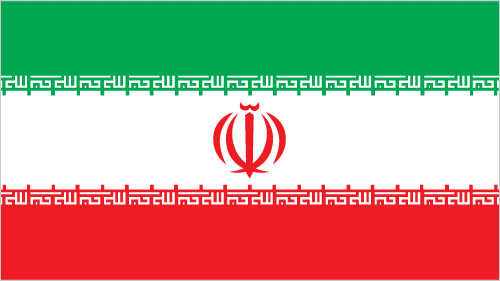Capital City: Tehran
Population: 80,840,713 (July 2014 est)
Currency: Iranian Rials (IRR)
Land Area: 1,648,195 sq km. Strategic location on the Persian Gulf and Strait of Hormuz, which are vital maritime pathways for crude oil transport.
Dominant Religions: Muslim (official) 99.4% (Shia 90-95%, Sunni 5-10%), other (includes Zoroastrian, Jewish, and Christian) 0.3%, unspecified 0.4% (2011 est)
Land Boundaries: Afghanistan 936 km, Armenia 35 km, Azerbaijan-proper 432 km, Azerbaijan-Naxcivan exclave 179 km, Iraq 1,458 km, Pakistan 909 km, Turkey 499 km, Turkmenistan 992 km
Location: Middle East, bordering the Gulf of Oman, the Persian Gulf, and the Caspian Sea, between Iraq and Pakistan
Climate: Mostly arid or semiarid, subtropical along Caspian coast. Iran has a diverse climate. In the northwest, winters are cold with heavy snowfall and subzero temperatures during December and January. Spring and fall are relatively mild, while summers are dry and hot. In the south, winters are mild and the summers are very hot, having average daily temperatures in July exceeding 38° C (100° F) and can hit 50° C in parts of the desert. On the Khuzestan plain, summer heat is accompanied by high humidity.
Terrain: Rugged, mountainous rim; high, central basin with deserts, mountains; small, discontinuous plains along both coasts
Visa: Nationals of Australia can apply for a visa on arrival at an airport, however entry via land borders requires a visa to be obtained in advance. Iranian Embassy in Canberra requires up to 4 weeks to supply visa. Iranian Embassy Canberra
Entry Point: Meer Jawe (from Taftan, Pakistan)
Exit Point: Bazargan (to Gurbulak, Turkey)
Cuisine: Iranian cuisine is superb. A wide range of influences from Central Asia, the Caucasus, Russia, Europe and the Middle East have created a diverse, relatively healthy range of dishes that focus on fresh produce and aromatic herbs. The bad news, however, is that Iranians prefer to eat at home, rather than in restaurants, so decent eateries are scarce and stick to a repetitive selection of dishes (mainly kebabs). An invitation to an Iranian home for dinner will be a definite highlight of your stay. When visiting an Iranian household for the first time or on a special occasion it is customary for Iranians to bring a small gift. Flowers, sweets or pastries are popular gift choices. The importation and consumption of alcohol is strictly banned.

